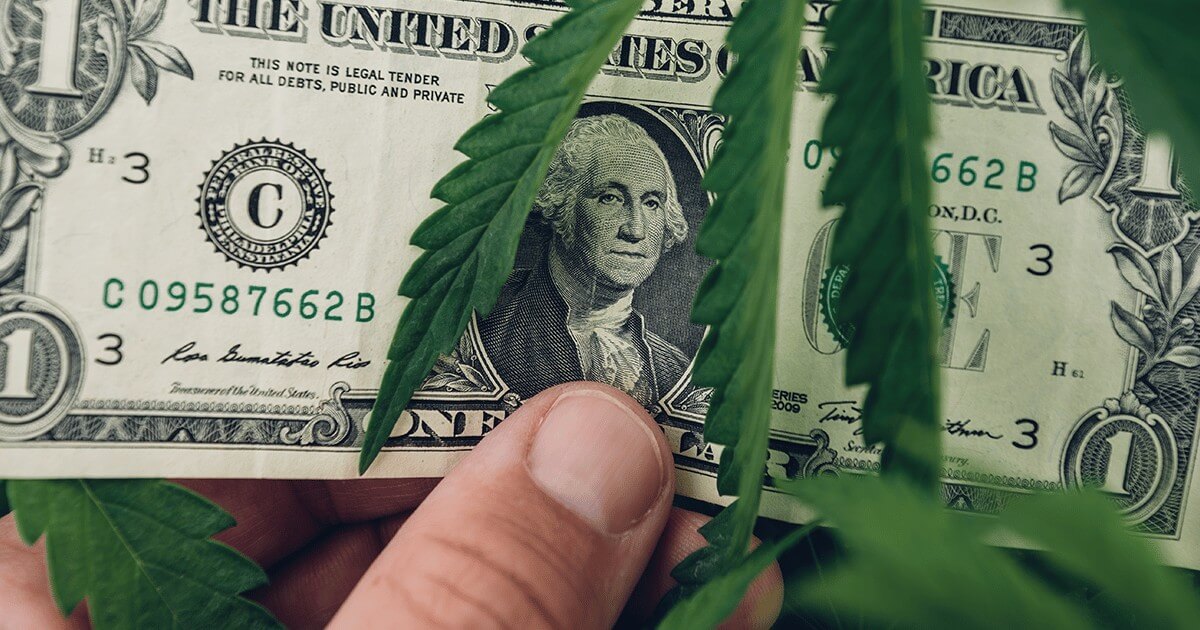California Cannabis companies are continuing to face an ever-persisting burden when it comes to taxes within the market. While the COVID-19 pandemic brought leniency from tax collectors, that clemency is no longer anywhere to be found, and companies are paying the price. Or not.
According to MJBizDaily, both licensed and unlicensed cannabis companies alike owe a whopping $200 million dollars in taxes as of right now. Although the market is beginning to recover from the wrath of the Coronavirus pandemic, there are a number of important factors that are continuing to contribute to financial suffering within California’s marijuana industry.
Back To Life
Over the course of the last few months, the state has seen a tightening of the reins, so to speak, when it comes to the enforcement of tax payments and fees. The California Department of Tax and Fee Administration (CDTFA) has significantly upped the ante when it comes to dismantling illegal operations and sellers operating unlicensed.
The state is seeing an increase in raid operations as well as the seizing and selling of properties that had previously been being run illicitly.
According to a representative from the CDTFA, the department had remained lenient throughout the COVID-19 pandemic because it “was mindful of hardships that all businesses faced during the pandemic.”
“Now that the economy is showing signs of recovery,” according to that same representative, “[they] are resuming [their] standard approach to enforcement in all industries, including cannabis.”
Seizing Properties
A recent addition to the punitive measures of the CDTFA is the seizing of properties operating within the illicit cannabis market. Within three months, the department successfully auctioned three seized properties, the third of which sold for $50,000.
After a probe into illegal cannabis sales, the department seized and sold a property in Whittier, located east of Los Angeles, for $310,000 in late March. According to the CDTFA, unlicensed operators at the facility owed $850,000 in taxes.
Prior to that, the CDTFA sold another acquired property in Compton for $256,000 in collaboration with the Los Angeles County Sheriff’s Department.
In a conversation with MJBizDaily, the CDTFA said that unlicensed operations were functioning out of those properties and were selling an array of items including cannabis and cannabis paraphernalia.
Since 2020, the CDTFA has confiscated more than $30 million in cash and cannabis-related goods.
Back To ‘Illegality’
While the crack-down is all fine and well for tax collectors, licensed cannabis retailers are continuing to suffer harsh repercussions. Perhaps even harsher than the ones the pandemic brought. In Governor Newsom’s newly proposed tax plan, the state cultivation tax will be eliminated, and the burden will instead be placed at the retail level.
Since the legalization of cannabis in the state of California in 2018, licensed retailers have collected a colossal $187 million in unpaid taxes.
According to industry leaders and experts, California’s high tax rates have decimated licensed cannabis businesses while giving underground operations a substantial advantage in avoiding taxes and other compliance standards.
According to Tracy Gallegos, of the Duane Morris Law Firm in Las Vegas, many retailers entered the legal market hoping for promising and fruitful results. However, weak business decisions and a certain level of ignorance have resulted in crushing tax, licensing, and compliance fees.
For some experts like Gallegos, the heightening of regulations and taxes could result in the opposite of the desired effect and instead continue to motivate licensed retailers to head to the illicit market.
Yes, it seems as though the state of California – and the rest of the world – is beginning to heal from the damages caused by the pandemic, but tax collectors are forgetting – or choosing not – to consider other factors that are contributing to continued difficulties in the regulated market.
While the seizing of properties operating illicitly is important, it is equally necessary to recognize what is encouraging those illegal markets to flourish in the first place. Only then can the state begin to see real and lasting reform.
Enjoyed that first hit? Come chill with us every week at the Friday Sesh for a freshly packed bowl of the week’s best cannabis news!
- Delaware’s Recreational Cannabis Market Finally Set to Launch After Years of Challenges
- Excise Tax Increase to 19% and Its Impact on California Retailers
- Nebraska’s Governor Approves Emergency Medical Cannabis Regulations
- We Must Advocate for Fair and Accurate Marijuana Impairment Testing Policies
- The Global Roots of Plant Medicine: Why Cannabis Has Always Been Part of the Plan
- Hawaii’s HB 302 Becomes Law After Governor’s Unexpected Reversal














